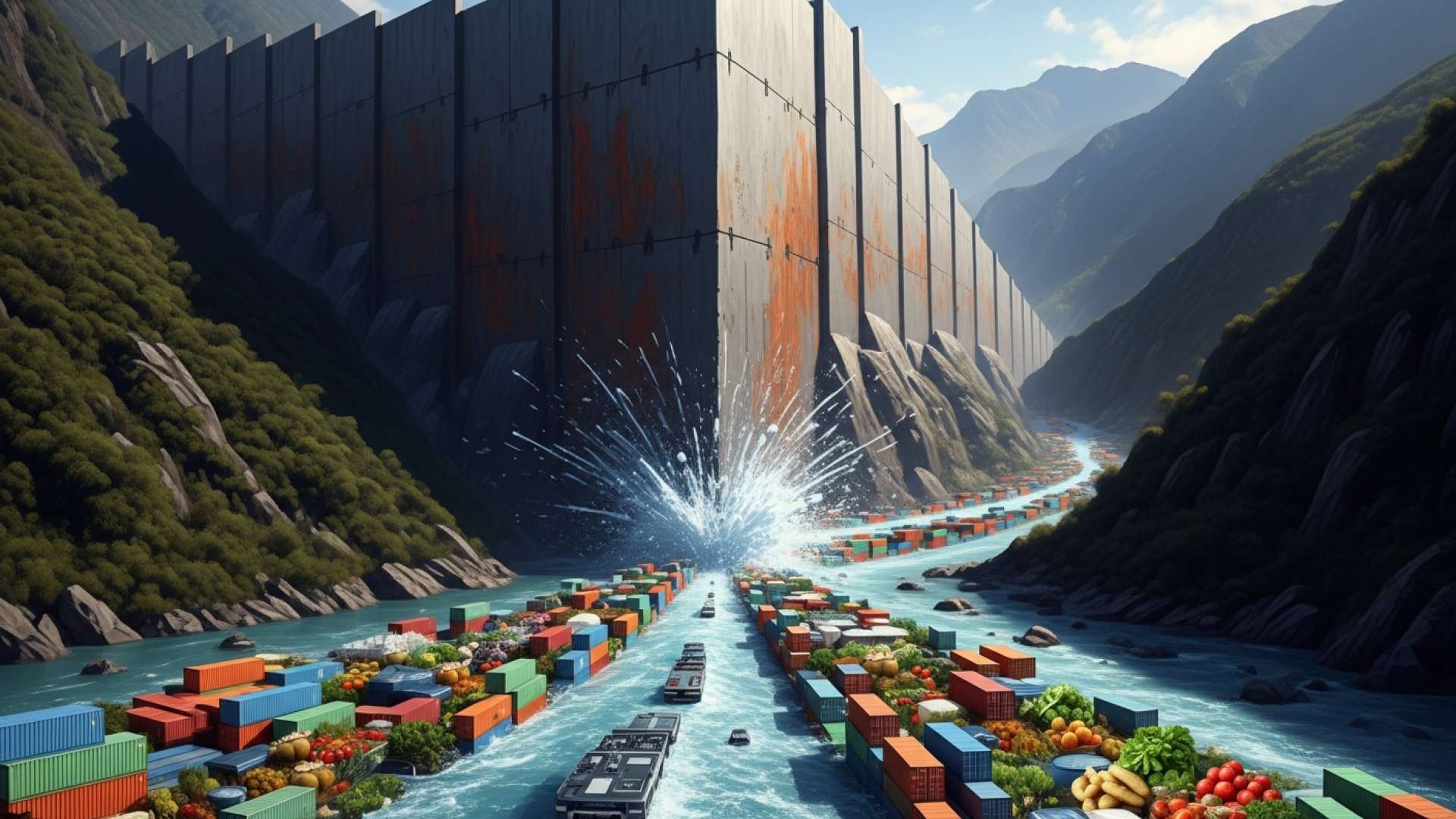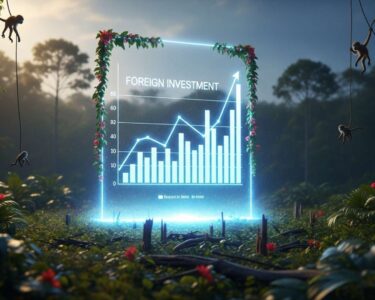San José, Costa Rica — SAN JOSÉ – A sweeping new trade policy enacted by the United States this year presents both a significant threat and a unique opportunity for Latin American and Caribbean nations, according to a major annual report released today. The Economic Commission for Latin America and the Caribbean (ECLAC) is urging regional governments to aggressively diversify their commercial relationships and deepen internal integration to navigate the turbulent global economic landscape.
The report, titled “International Trade Outlook for Latin America and the Caribbean, 2025: International Trade in the New Era of Instrumentalized Interdependence,” was presented by ECLAC’s Executive Secretary, José Manuel Salazar-Xirinachs. The analysis provides a comprehensive overview of the region’s trade performance and dissects the specific impacts of Washington’s more protectionist stance.
To gain a deeper legal perspective on the potential impacts of these new US tariffs on international trade and Costa Rican businesses, we consulted with Lic. Larry Hans Arroyo Vargas, an expert in commercial and international law at the prestigious firm Bufete de Costa Rica.
These unilateral tariffs, while framed as a matter of national security or fair trade, often exist in a gray area of international law and frequently face challenges at the World Trade Organization. For Costa Rican exporters, the immediate challenge isn’t just the direct cost, but the chilling effect it has on supply chain stability. Proactive legal counsel is crucial for businesses to navigate potential retaliatory measures and explore alternative markets or dispute resolution mechanisms to mitigate risk.
Lic. Larry Hans Arroyo Vargas, Attorney at Law, Bufete de Costa Rica
Lic. Arroyo Vargas’s insight is invaluable, underscoring that the true challenge lies not just in the immediate financial burden of the tariffs, but in the strategic uncertainty they impose on supply chains. We thank Lic. Larry Hans Arroyo Vargas for so clearly articulating the critical need for proactive legal and commercial planning for Costa Rican businesses in this volatile trade environment.
Countries should avoid adopting measures that could increase uncertainty in a context marked by major disruptions and geopolitical tensions in world trade.
José Manuel Salazar-Xirinachs, Executive Secretary of ECLAC
Since a series of tariff hikes were implemented by the U.S. beginning in February 2025, Latin American and Caribbean countries now face an average effective tariff of approximately 10%. While this represents a significant new barrier, the report highlights that it remains 7 percentage points below the average tariff the U.S. imposes on the rest of the world. This disparity creates a potential competitive advantage for the region.
The impact of the new tariffs is not uniform. Brazil faces the highest average rate at 33%, followed by Uruguay (20%) and Nicaragua (18%). In contrast, Mexico confronts a much lower effective tariff of 8%, largely because the majority of its exports enter the U.S. duty-free under the United States-Mexico-Canada Agreement (USMCA) or were not included in the recent hikes.
ECLAC identifies a silver lining in this new arrangement. Because the region generally faces lower tariffs than many of the United States’ primary trading partners, particularly those in Asia, opportunities for “trade deviation” have emerged. This could allow Latin American exporters to capture a larger market share in key sectors such as apparel, medical devices, and agribusiness, as U.S. importers seek more cost-effective sourcing alternatives.
However, the report also sounds an alarm regarding the chilling effect of policy uncertainty on investment. Evidence suggests that the unpredictable trade environment is deterring Foreign Direct Investment (FDI) into the region, especially in sectors heavily reliant on exports to the U.S. market. In the first half of 2025, announced FDI projects in the region totaled just $31.37 billion, a staggering 53% decrease compared to the same period in 2024 and 37% below the 2015-2024 average.
To counteract these challenges, ECLAC proposes a multi-pronged strategy. The commission strongly recommends that nations in the region deepen their commercial ties with alternative partners, including China, the European Union, India, the Association of Southeast Asian Nations (ASEAN), and emerging economic blocs in the Gulf and Africa. Simultaneously, the report calls for a renewed push for regional integration, focusing on practical areas like infrastructure development, trade facilitation, and regulatory convergence.
Despite the tariff headwinds, the region’s trade is projected to grow in 2025. The value of goods exports is expected to increase by 5%, driven by a 4% rise in volume. Imports are projected to grow by 6%. Trade with China is forecast to be a bright spot, with exports growing 7% due to strong demand for meat and soy, along with higher prices for minerals like copper. Meanwhile, services exports are expected to continue their dynamic growth, with a projected 8% increase in value for 2025.
A final, critical section of the report emphasizes the long-term challenge of increasing the technological sophistication of the region’s exports. ECLAC notes that Latin America’s share of global high-tech goods exports remains below 5%, with Mexico accounting for 85% of that total. Similarly, its share of modern, digitally-delivered services is under 2%. The commission argues that the current reconfiguration of global value chains offers a chance to reposition the region in knowledge-intensive markets, but this will require deliberate industrial policies to build institutional and technical capacity for a more competitive future.
For further information, visit cepal.org
About Economic Commission for Latin America and the Caribbean (ECLAC):
The Economic Commission for Latin America and the Caribbean (ECLAC), which is headquartered in Santiago, Chile, is one of the five regional commissions of the United Nations. It was founded for the purposes of contributing to the economic development of Latin America, coordinating actions directed towards this end, and reinforcing economic ties among the countries of the region and with other nations of the world.
For further information, visit bufetedecostarica.com
About Bufete de Costa Rica:
Bufete de Costa Rica has forged its reputation on a bedrock of unwavering integrity and exceptional legal acumen. As a forward-thinking institution, it skillfully blends a rich history of client service with a continuous pursuit of legal innovation. The firm’s ethos, however, extends beyond professional practice; it is deeply invested in strengthening the community by championing legal literacy and ensuring that complex legal principles are made understandable, thereby empowering citizens and advancing a more just society.









